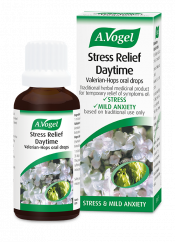An introduction to panic attack treatment
Panic attacks are brief episodes of severe anxiety or fear, giving rise to a number of symptoms. Each episode usually resolves without the need for any treatment.
Most panic attacks are not caused by a specific event but are the result of a number of factors. Some, such as the fear of flying, can have a direct and specific trigger, and in these cases, the easiest thing to do is to avoid the problem. However, this may not always be possible or convenient to do.
If you suffer from panic attacks, the first thing you need to do is to reassure yourself that no matter how severe the symptoms are, they are usually within the normal range of responses to stress and anxiety, and the problem is experienced by up to 20% of adults at some point in their lives. In other words, you are not abnormal.
In most cases, you should be able to cope with and overcome the problem using a number of self-help treatments and relaxation techniques. However, if the problem is severe, you may wish to seek the help of a psychologist or other therapist.
Lifestyle changes
There are several steps which you can take to stop a panic attack if you feel one coming on, but it is better that the attack never develops. The following changes may help reduce your chances of suffering a panic attack:
- Reduce your intake of caffeine – this worsens stress symptoms and makes you more likely to be ‘jumpy’. Drink more herbal teas and use a coffee substitute
- Reduce your intake of alcohol and recreational drugs (if you are taking these)
- Exercise for 30 minutes each day; if not in the gym then a simple brisk walk will help
- Take time every day to relax so that anxiety and stress don’t get the better of you
- Get involved in some stress management activities such as yoga and pilates
- Consider using support groups and counselling
Talking therapies
If you are experiencing panic attacks, it is likely that you will be under some form of stress and experiencing a degree of anxiety. If these have become significant problems, affecting your day-to-day activities, talking to a psychologist or counsellor may help.
Opening up your worries and fears to a medical professional can often be enough to help you ‘sort your head out’. However, your therapist may also introduce you to exercises to be used every time you begin to feel panic rising. With these, you will eventually be able to train your thought processes to a level that will allow you to handle stressful or difficult experiences much more calmly.
Cognitive Behavioural Therapy
Cognitive Behavioural Therapy (CBT) is a specific form of talking therapy. It involves changing the way you think, assess and react to a specific situation or problem. You will work with a therapist who will dissect the way you naturally respond in a situation, and gradually teach you to change this into a response based on a more calm or positive outlook. Essentially, over a few sessions, you will be taught to regain control over your cognitive (mental) responses and resulting behaviours.
Herbal remedies
Experiencing a greater degree of underlying stress or anxiety will give you a tendency to panic attacks. Herbal remedies are often the first choice of medicines to keep on top of mild stress and anxiety, and may also be used alongside other therapies such as talking therapies. Over the years, the research evidence on how herbs work has increased:
- Valerian is a herb which is found widely across Europe. It has tranquillising properties, calming the nerves by decreasing the activity in the nervous system. The herb is usually used in combination with others such as Hops as found in licensed herbal remedies such as Stress Relief Daytime
- St. John’s wort, also known as Hypericum, is a traditional herbal remedy for easing the symptoms of low mood and anxiety which may predispose one to panic attacks. It works by influencing chemicals known as neurotransmitters in the brain. It is contained in licensed herbal remedies such as Hyperiforce St. John’s wort tablets
- Avena sativa, or oats, contain high levels of vitamin B as well as a substance known as gramine, all important for the proper functioning of the nervous system. It is the leaves and stalks of oats which are used medicinally, not the grain which goes into our food such as porridge. Avena sativa can be found in the licensed herbal remedy AvenaCalm Avena sativa drops.
Conventional medicines
Conventional medicines are often the last resort for the treatment of panic attacks as doctors have to weigh-up the associated side effects against the benefits of each drug. They may be appropriate in severe cases where talking therapies, CBT and herbal remedies have not helped.
There is a range of anti-anxiety treatments and anti-depressants available and your doctor will be the best person to discuss options with you. You may need to work with your doctor to try a few of these before you come to the most suitable treatment for you.
It is important to seek the advice of your doctor if you:
- Experience recurrent and uncontrollable panic attacks
- Frequently feel shortness of breath
- Are experiencing palpitations or an irregular heartbeat
- Are feeling depressed
- Have thoughts of suicide.








